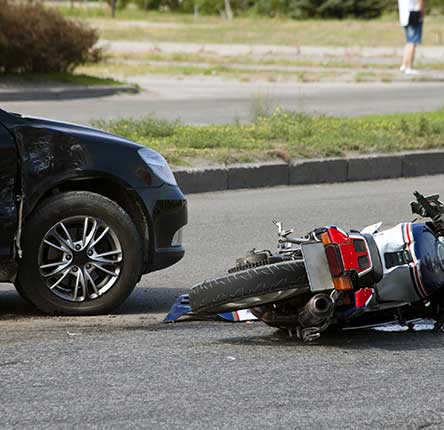Motorcycle safety courses are definitely worth it for accident prevention. In fact, many States require motorcyclists to complete a safety course before they can obtain a motorcycle license. Even if a safety course is not required in your state, taking one can greatly reduce your risk of being involved in a motorcycle accident.
Here are some of the benefits of taking a motorcycle safety course:
- Learn essential skills: Motorcycle safety courses teach essential riding skills and techniques, such as braking, turning, and swerving, which can help you avoid accidents.
- Gain confidence: Safety courses provide riders with the opportunity to practice and develop their skills in a controlled and safe environment, which can increase their confidence on the road.
- Understand the rules of the road: Safety courses cover the rules and regulations of motorcycle riding, including traffic laws and safety tips.
- Get personalized feedback: Instructors provide personalized feedback on your riding, helping you identify areas where you need to improve and giving you tips for becoming a safer and more skilled rider.
- Connect with other riders: Safety courses provide opportunities to connect with other riders and share experiences and tips, creating a supportive community of motorcyclists.
There are several types of courses available, including beginner courses for those who are new to riding, intermediate courses for riders who want to improve their skills, and advanced courses for experienced riders who want to take their skills to the next level.
The most commonly offered motorcycle safety courses in the States are the Basic Rider Course (BRC) and the Experienced Rider Course (ERC). These courses are typically offered by the Motorcycle Safety Foundation (MSF), a non-profit organization that promotes motorcycle safety and education.
Here is a brief overview of these courses:
- Basic Rider Course (BRC): This course is designed for beginners who have little or no riding experience. The BRC covers the basics of motorcycle operation, including starting, stopping, turning, and shifting. It also includes classroom instruction on the rules of the road and motorcycle safety. Most states require the completion of the BRC in order to obtain a motorcycle license.
- Experienced Rider Course (ERC): This course is designed for riders who already have some experience but want to improve their skills. The ERC covers advanced riding techniques, such as braking, cornering, and swerving. It also includes classroom instruction on risk management and strategies for avoiding accidents.
To enroll in a motorcycle safety course, you will need to contact your local MSF training center. You can find a list of training centers on the MSF website. Once you have found a training center, you can register for a course online or by contacting the center directly. The cost of the course will vary depending on the location and the type of course, but financial assistance may be available in some cases.
There are even courses for children. Check out our story on Daddys Little Riders “I’m not doing it for the money, but instead to introduce youth to the sport and teach knowledge and responsibilities to the kids in an effective manner and safe environment.” Paul Brown III
Overall, taking a motorcycle safety course is a great investment in your safety as a rider. Even experienced riders can benefit from a refresher course, as riding skills can degrade over time or may need updating due to changes in technology or riding conditions. By developing your riding skills and knowledge, you can help prevent accidents and enjoy a safer, more enjoyable riding experience.
Safety courses alone cannot protect you from drivers that ignore motorcycles. The aftermath of a motorcycle accident can be a trying and overwhelming experience, leaving victims to face not only physical pain but emotional distress and financial challenges. Remember that you don’t have to navigate this difficult journey alone. A skilled and compassionate motorcycle accident lawyer can provide the support and guidance you need to secure the compensation you deserve. Don’t hesitate to take control of your situation and reclaim your life. If you or a loved one has been injured in a motorcycle accident, contact a trusted attorney today for a free consultation to explore your options and start the journey towards healing and recovery. If you need help finding an attorney contact us today.






